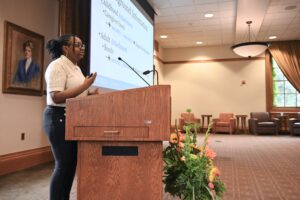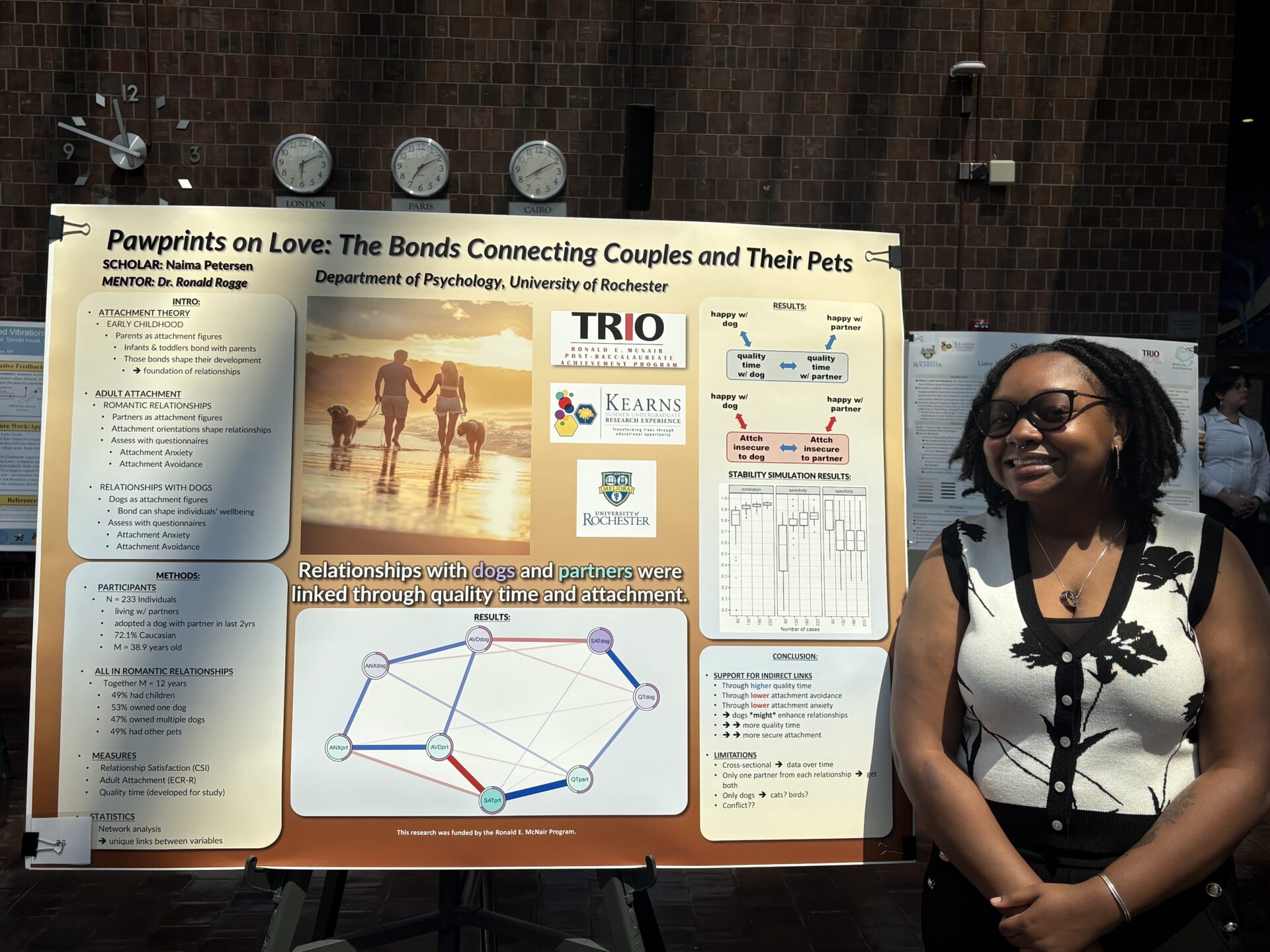If you want to do research in college, don’t get discouraged—even if your journey starts with a lot of no’s or if you need more experience first. Sometimes you get involved in research simply because of curiosity, with no prior experience, or from a casual interaction with a professor who later sees you as a good fit for their lab. Other times, you find opportunities through a program you join or through your social network connecting you with the right people. However it starts, it doesn’t matter—there’s no single correct way into research, and no two paths look the same.
So let me tell you about my path, how it led me to present at my first research symposium last summer, and how I’m now working in two labs this semester.
Freshman Year
During my freshman year, I came to college trying to figure out who I wanted to be and how to manage the life I wanted. At first, I focused on school, work, and having a social life. I didn’t rush into research because I wanted to first find my rhythm in college. I knew it was different from high school—more independent—so I didn’t want to overwhelm myself by jumping into everything at once.
For me, that rhythm meant building a schedule that balanced my essentials—self-care, staying connected with home, academics, and work—with the things I enjoyed, like hanging out with friends, going out on weekends, and trying new things. Finding that balance mattered to me.
Even though I didn’t search for research, I noticed many of my peers getting involved early and staying in Rochester over the summer for different opportunities. That made me worry I wasn’t doing enough. So when freshman year ended, I promised myself that sophomore year I would find research. I wanted to spend the summer in a lab or internship—something paid, but also meaningful. That’s when my real journey began.
Sophomore Year
Before sophomore year, I applied to be a research assistant at Mt. Hope Family Center. I heard back quickly and even got an interview with someone in the Project Flight lab. I felt so excited because the research matched my interests as a psychology major. But when the final email came, they said no—they needed someone with more experience in data collection and cleaning. It wasn’t the answer I hoped for, but I didn’t let it stop me.
I tried again with one of my professor’s labs that studied child development. That wasn’t my exact interest, but I’ve always found psychology fascinating. Unfortunately, I got another rejection. They needed someone with more experience and whose focus matched theirs. That stung, but I told myself to keep going.
Then I remembered the McNair Scholars Program. It supports students from underrepresented and low-income backgrounds who wanted to do research and go on to grad school. I went to info sessions, reached out to staff, and worked on my application. I needed a recommendation letter, so I asked my freshman Animal Minds professor. She didn’t have research openings, but she kindly wrote me a letter.
After applying, I interviewed with the McNair director and advisor in December. Waiting for the results was nerve-wracking—I didn’t hear back for weeks in January and started to panic. I threw myself into applying for labs, internships, and REU programs. Then, at the very end of January, I finally got the news: I got into McNair. I felt so relieved and honestly just really happy.
Joining McNair guaranteed me a paid summer research experience in Rochester, plus guidance on future opportunities and grad school applications. I finally felt like I was in a good place with my research journey. And the best part? I wasn’t doing it alone—I had a cohort beside me. Now I just needed a lab.
Search for a Mentor & Lab
As a McNair scholar, I took a class that prepared me for summer research. The class helped me identify potential mentors and taught me how to write professional emails to ask about joining their labs. I emailed five professors whose research aligned with my interests. They all replied, which felt great, but the answers were mixed.
One professor didn’t have a lab because she was teaching faculty. Another wouldn’t be in Rochester over the summer. A third was on maternity leave, though she connected me with her graduate student, who I later interviewed with about joining her lab in fall 2025 and spring 2026. My top choice, though, was a professor whose class I was currently taking. He said yes and became my mentor for the summer, which made me really excited.
Summer 2025
After sophomore year ended, I started my first research summer—and definitely not my last. I worked with my mentor on a follow-up study exploring the connection between romantic relationships and dog ownership. The project demanded time and effort from both of us. We met three times a week, sometimes more, and spent hours working through each step of the study. Our goal was to present at the 33rd Annual Kearns Summer Research Symposium in July, which gave us just ten weeks to pull it all together.
The experience was incredible. I learned that research isn’t simple—technical difficulties can slow things down—but I didn’t let that stop me. I created both an oral presentation and a poster, and I practiced my talk over and over. Presenting drained me more than I expected, but the more I did it, the better I got. By the end, I knew my research like the back of my hand and could explain it to anyone. Watching that skill grow in me made me proud.

Today’s News and Advice
I enjoyed it so much that I registered for a research methods in psychology class, where I am currently running my own pilot study. I also continued working in my mentor’s lab and later secured a research assistant position in the Le Lab with the graduate student I had first interviewed during my search for a mentor.
This experience helped me achieve the goal I set at the end of my freshman year while also expanding my network and opening doors to future opportunities. Beginning my research journey showed me what research means to me and gave me a clearer sense of the kind of work I want to pursue. If you’re interested in research during college, my advice is to follow your curiosity—you never know where it might take you.
Links You Might Want to Check Out
Want to learn more about my research study click here.
Learn about the Le Lab here.
Check out TRIO Ronald E. McNair Post-Baccalaureate Achievement Program
The URochester Office of Undergraduate Research

